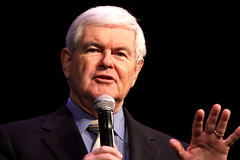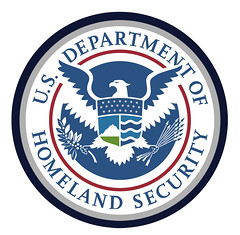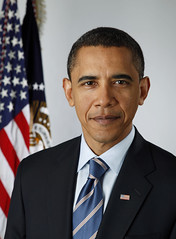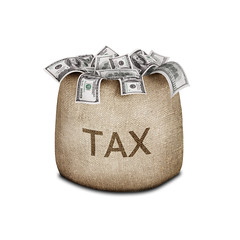AMSCO AP US History Chapter 31 Flashcards
AMSCO United States History 2015 Edition, Chapter 31 Challenges of the 21st Century, 2000-Present
| 6598018080 | political polarization | In the 2000s the political parties became regionally divided. Traditional, religious, and anti-government voters were often in rural and suburban areas and voted Republican. Liberals were commonly found in urban areas and voted Democrat. (p. 679) |  | 0 |
| 6598018081 | Southern white conservatives | Southerners Newt Gingrich, Tom DeLay, and Trent Lott took over the leadership of the Republican party, making it more conservative and partisan. (p. 679) |  | 1 |
| 6598018082 | gerrymandered "safe seats" | Democrats and Republicans manipulated congressional districts to create "safe seats", which rewarded partisanship and discouraged compromise in Congress. (p. 679) |  | 2 |
| 6598018083 | election of 2000 | In this presidential race Al Gore won the popular vote, George W. Bush won the electoral vote. It was the closest election since 1876. The Supreme Court settled the election in Bush's favor. (p. 680) |  | 3 |
| 6598018084 | George W. Bush | He won the 2000 and 2004 presidential elections. He was the son of former president George H. W. Bush. (p. 680) |  | 4 |
| 6598018085 | Al Gore | He was Bill Clinton's vice president. In 2000 he lost a very close presidential election to George W. Bush. (p. 680) |  | 5 |
| 6598018086 | Bush v. Gore | In the 2000 election, Florida was the deciding state. George Bush led by 537 popular vote after a partial recount in that state. The Democrats asked for a manual recount. The Supreme Court majority ruled that the varying standards used in Florida's recount violated the Equal-Protection Clause of the 14th Amendment. Al Gore ended the election crisis by accepting the ruling. (p. 680) |  | 6 |
| 6598018087 | Bush tax cuts | President George W. Bush cut taxes on the top tax bracket, gradually eliminated estate taxes, increased child tax credits, gave all taxpayers an immediate rebate. Bush pushed for tax cuts for stock dividends, capital gains, and married couples. (p. 680) |  | 7 |
| 6598018088 | No Child Left Behind Act | This act aimed to improve student performance and close the gap between rich students and poor students, gave students the right to transfer to better schools, stronger reading programs, and trained high-quality teachers. (p. 681) |  | 8 |
| 6598018089 | Enron, corporate corruption | This large corporation falsified stated earnings and profits with the help of accounting companies. (p. 681) |  | 9 |
| 6598018090 | housing bubble | When the stock market gains turned down, many investors put their money into real estate, creating a speculative bubble that would burst in George W. Bush's second term. (p. 681) |  | 10 |
| 6598018091 | election of 2004 | In this presidential election George W. Bush was reelected, defeating Senator John Kerry. The Republicans energized their base of voters by focusing on the war against terrorism, more tax cuts, and opposition to gay marriage and abortion. (p. 684) |  | 11 |
| 6598018092 | John Kerry | In 2004, this senator from Massachusetts was the Democratic presidential nominee. (p. 684) |  | 12 |
| 6598018093 | privatization of Social Security | President Bush pushed Congress to privatize Social Security by encouraging Americans to invest part of their Social Security payroll deductions into various market investments. (p. 685) |  | 13 |
| 6598018094 | Hurricane Katrina | When the hurricane hit, FEMA failed to anticipate and respond to the crisis, resulting in more than 1,000 deaths, and tens of thousands of mostly poor people left in desperate conditions. (p. 685) |  | 14 |
| 6598018095 | corruption in Congress | In George W. Bush's second term, Republican's reputations were tarnished by scandals including, taking bribes from lobbyists, committing perjury and obstruction of justice, and having improper relations with congressional pages. (p. 685) |  | 15 |
| 6598018096 | John Roberts | President George W. Bush appointed this conservative judge to the Supreme Court as chief justice. (p. 685) |  | 16 |
| 6598018097 | Samuel Alito | President George W. Bush appointed this conservative judge to the Supreme Court. (p. 685) |  | 17 |
| 6598018098 | Colin Powell | This general became George W. Bush's secretary of state, the first African American to hold the job. (p. 681) |  | 18 |
| 6598018099 | Islamic roots of anti-Americanism | After World War I, the Ottoman Empire, the last of Islamic empires, was replaced with Western-style secular nation states. The U.S. stationed troops in the Middle East after the Gulf War. Islamic religious fundamentalists objected to these actions. (p. 682) |  | 19 |
| 6598018100 | Al-Qaeda | "The Base" preached jihad, which they defined as a holy war against "Jews and Crusaders", to restore an Islamic realm in the Middle East. (p. 682) |  | 20 |
| 6598018101 | Osama bin Laden | The founder of Al-Qaeda, the terrorist network responsible for the attacks of September 11, 2001, and other attacks. (p. 682) |  | 21 |
| 6598018102 | asymmetric warfare | Warfare conducted by terrorists when combatants have highly unequal military capabilities, such as when terrorists or rebel groups fight strong states. (p. 682) |  | 22 |
| 6598018103 | bombing of U.S. embassies | In 1998, terrorists bombed two U.S. embassies in Kenya and Tanzania. The U.S. responded by bombing Al-Qaeda camps in Afghanistan and the Sudan. (p. 682) |  | 23 |
| 6598018104 | U.S.S. Cole | In 2000, two suicide bombers in a small rubber boat nearly sank a billion dollar warship docked in Yemen, the USS Cole. (p. 682) |  | 24 |
| 6598018105 | World Trade Center | A group of buildings in New York City. Two of the largest tower buildings were attacked and destroyed on September 11, 2001. (p. 682) |  | 25 |
| 6598018106 | September 11, 2001 | On this date, know as 9/11, Al-Qaeda terrorists flew planes into World Trade Center twin towers, the Pentagon, and crashed a jetliner into a field in Pennsylvanian. Nearly 3,000 people were killed in the attacks. The attacks galvanized public opinion as nothing since the Pearl Harbor attack in 1941. (p. 682) |  | 26 |
| 6598018107 | Afghanistan, Taliban | President Bush declared he wanted Osama bin Laden and other Al-Qaeda leaders "dead or alive". The Taliban refused to turn them over, so in response the U.S. quickly overthrew the Taliban government in Afghanistan. U.S. led troops pursued bin Laden to the mountains bordering Pakistan, but were unable to catch him. (p. 682) |  | 27 |
| 6598018108 | Hamid Karzai | He became the head of the Afghanistan government in Kabul with the U.S. backing. However, Afghanistan remained unstable and divided by the Taliban insurgency and tribal conflicts. (p. 682) |  | 28 |
| 6598018109 | Homeland Security Department | President George W. Bush created this new department by combining more than 20 federal agencies with 170,000 employees. The agencies including the Secret Service, Coast Guard, and customs and immigration agencies. Many questioned why the FBI and CIA were left out of the new department. (p. 683) |  | 29 |
| 6598018110 | connect the dots | In 2004, a bipartisan commission on terrorism criticized the FBI, CIA, and the Defense Department for failing to work together to "connect the dots" that may have uncovered the 9/11 plot. Congress followed up on their recommendations, creating a Director of National Intelligence position. (p. 683) |  | 30 |
| 6598018111 | Director of National Intelligence | This newly created position was responsible for coordinating the intelligence activities of all agencies. (p. 683) |  | 31 |
| 6598018112 | Kyoto Accord | The Bush administration refused to join this climate agreement to prevent global warming. (p. 683) |  | 32 |
| 6598018113 | Bush Doctrine | This doctrine argued that the old policies of containment and deterrence were no longer effective in a world of stateless terrorism. It stated that to protect itself, the United States should take preemptive action against terrorist threats to its national security. (p. 683) |  | 33 |
| 6598018114 | unilateralist approach | The United States would pursue its own defense policy with little or no cooperation with other nations. (p. 683) |  | 34 |
| 6598018115 | axis of evil | In his 2002 State of the Union Address, President George W. Bush used this term for the countries of North Korea, Iraq, and Iran. (p. 683) |  | 35 |
| 6598018116 | WMDs | Weapons of Mass destruction (p. 683) |  | 36 |
| 6598018117 | Saddam Hussein | He was the Iraq dictator in Iraq who invaded Kuwait. He refused to let the U.N. into Iraq for WMD inspections. (p. 683) |  | 37 |
| 6598018118 | U.N. inspections | U.N. inspections failed to find WMD's in Iraq. However, the Bush administration continued to present claims of their existence based on intelligence information that proved to be false. (p. 683) |  | 38 |
| 6598018119 | Operation Iraq Freedom | In early 2003, President Bush declared that Iraq had not complied with numerous U.N. resolutions, and that "the game was over". In March 2003 the United States launched air attacks on Iraq, and within 4 weeks U.S., British, and other allies captured the capital city, Baghdad. (p. 684) |  | 39 |
| 6598018120 | regime change | When U.S. forces could not find WMDs in Iraq, criticism of the "regime change" mounted. (p. 684) |  | 40 |
| 6598018121 | war of choice | A term used for the Iraq War because it was not clear that is was a war that was required. (p. 684) |  | 41 |
| 6598018122 | Sunni vs. Shiite | After Saddam Hussein's death, the Sunni and Shiites attacked each other, and millions of Iraqis fled the country or were displaced. The Bush administration was widely criticized for going into Iraq without sufficient troops to control the country and to disband the Iraqi army. (p. 684) |  | 42 |
| 6598018123 | Abu Ghraib prison | Pictures of the barbaric treatment of prisoners by U.S. troops in this prison further diminished America's reputation in Iraq and around the world. (p. 684) |  | 43 |
| 6598018124 | 2007 troop surge | In early 2007, President George W. Bush sent an additional 30,000 troops in a "surge" to establish order in Iraq. (p. 684) |  | 44 |
| 6598018125 | securitization | Wall Street packaged the high risk housing loans into a variety of complex investments , then sold them to unsuspecting investors around the world. (p. 685) |  | 45 |
| 6598018126 | liquidity crisis | When the housing market bubble burst, banks and financial institutions faced failure resulting in this crisis. Banks either lacked funds or were unable to make the loans to businesses and consumers necessary for the day-to-day functioning of the economy. (p. 685) |  | 46 |
| 6598018127 | Fannie May, Freddie Mac | In early 2008 the federal government took over these two quasi-governmental mortgage institutions. (p. 685) |  | 47 |
| 6598018128 | Lehman Brothers | In September 2008, this large Wall Street investment bank declared bankruptcy, which led to a panic in the financial industry. (p. 685) |  | 48 |
| 6598018129 | Troubled Assets Relief Program (TARP) | The Economic Stabilization Act of 2008 created this controversial program. The federal government used $700 million to purchase failing assets, that included mortgages and mortgage-related securities, from financial institutions. Conservatives called it socialism, and liberals called it a bailout of the people who had caused the problems in the first place. (p. 685) |  | 49 |
| 6598018130 | poor regulation of financial institutions | The causes of the Great Recession will be debated for years, causes include: Excessive deregulation of the financial industry Real estate bank fraud Federal Reserve kept interest rates too low Government efforts to promote home ownership (p. 685) |  | 50 |
| 6598018131 | election of 2008 | In this presidential election Democrats Barack Obama and Joseph Biden ran against Republicans John McCain and Sarah Palin. The Republican Bush administration was unpopular and the country faced was facing an economic crisis. Obama's message for change and his well-funded grassroots campaign led him to victory. (p. 686) |  | 51 |
| 6598018132 | Hillary Clinton | In 2008, this Democratic senator from New York was the early favorite in the Democrat primary race. (p. 686) |  | 52 |
| 6598018133 | Barack Obama | In 2008, this young, charismatic, Democratic senator from Illinois became the first African American president of the United States. (p. 686) |  | 53 |
| 6598018134 | John McCain | In 2008, this Republican senator from Arizona was the Republican nominee for president. He was a Vietnam war hero who hoped to appeal to undecided voters. (p 686) |  | 54 |
| 6598018135 | Sarah Palin | In 2008, this Republican governor of Alaska was the vice presidential candidate, running with John McCain. (p. 686) |  | 55 |
| 6598018136 | effects of Great Recession | The Great Recession started in late 2007. The stock market dropped dramatically but recovered by 2013, unemployment peaked at 10 percent in 2009 and stayed at 7 percent until 2013. Obama enacted a number of Keynesian programs to promote recovery. (p. 687) |  | 56 |
| 6598018137 | 2009 stimulus bill | The American Recovery and Reinvestment Act of 2009 provided $787 billion economic stimulus package designed to create or save 3.5 billion jobs. It featured tax cuts, aid to state and local governments, and funding for construction projects, health care, education, and renewable energy. (p. 687) |  | 57 |
| 6598018138 | Dodd-Frank Act | This act was designed to improve regulations of banking and investment firms, and to protect taxpayers from future bailouts of "too big to fail" businesses. It also set up a Bureau of Consumer Protection to regulate mortgages and credit cards. (p. 687) |  | 58 |
| 6598018139 | aid to auto industry | With General Motors and and Chrysler near collapse, the Obama administration stepped in to help. The government temporarily took over General Motors while in bankruptcy, and guided the sale of Chrysler to Italian automaker Fiat. (p. 687) |  | 59 |
| 6598018140 | Affordable Care Act | !in 2008, the U.S. "fee for service" medical system was the most expensive in the world, but produced mixed results. This healthcare act aimed to extend affordable health care insurance to more Americans through combinations of subsidies, mandates, and insurance exchanges while introducing medical and insurance reforms to control health care costs. Many Americans were confused by its complexity. (p. 687) |  | 60 |
| 6598018141 | budget deficits | The Great Recession lowered federal income tax collected and increased spending on recovery programs. The annual federal deficit tripled to $1.75 trillion in 2009. The national debt rose to $16 trillion by 2012. (p. 688) |  | 61 |
| 6598018142 | Bowles-Simpson plan | This plan would have eliminated the deficit by 2035 through $2 of spending cuts for every $1 increase in revenues. It was rejected by both parties. (p. 688) |  | 62 |
| 6598018143 | Tea Party | In 2010, this group of loosely united conservatives and libertarians formed this movement. Many members focused on economic issues and limited government, but others focused on gun rights, prayer in schools, outlawing abortions, and preventing undocumented immigration. (p. 688) |  | 63 |
| 6598018144 | debt ceiling | In August 2011, as the debt ceiling closed in an agreement was reached to cut $900 billion in spending and cut an additional $1.4 trillion to be determined by a bipartisan committee. (p. 688) |  | 64 |
| 6598018145 | super-committee | The bipartisan committee that was to determine what the $900 billion spending cuts were to be. (p. 688) |  | 65 |
| 6598018146 | U.S. credit rating | In 2011, the uncertainty and gridlock in Washington led Standard & Poor's to downgrade the US AAA credit rating. (p. 688) |  | 66 |
| 6598018147 | election of 2012 | In this presidential election the Great Recession and Obamacare (new healthcare act) were the top issues. Barack Obama defeated Mitt Romney in this election. (p. 690) |  | 67 |
| 6598018148 | Mitt Romney | In 2012, this conservative, Mormon, former governor of Massachusetts, was the Republican presidential candidate. (p. 690) |  | 68 |
| 6598018149 | Latino voters | In 2012, 1 in every 6 American voter was a Latino voter, and President Obama won 71 percent of the Latino votes in this election. (p. 690) |  | 69 |
| 6598018150 | sequester cuts | In 2013, Congress was unable to compromise on the budget so these cuts went into effect. (p. 690) |  | 70 |
| 6598018151 | 2013 shutdown of government | In October 2013, the Republican effort to defund the Affordable Care Act resulted in a shutdown of the government for 16 days, and threatened default on the national debt. The approval rating of Congress dropped to 10 percent. (p. 690) |  | 71 |
| 6598018152 | gun violence | Mass shootings at a Colorado movie theater and a Connecticut school sparked another debate over guns. President Obama's proposals to tighten gun laws went nowhere because of gun rights advocates. (p. 690) |  | 72 |
| 6598018153 | Boston Marathon bombing | Fear of home-grown terrorism became real when two brothers set off two bombs at the finish line of the Boston Marathon killing three and injuring more than 250 people. The young men who did the bombing seemed motivated by extremist Islamic beliefs. (p. 690) |  | 73 |
| 6598018154 | ban on torture | In 2009, President Obama placed a formal ban on torture by requiring that Army field manuals be used as the guide for interrogating terrorist suspects. (p. 687) |  | 74 |
| 6598018155 | withdrawal from Iraq | In early 2009, President Obama developed a plan to wind down US ground combat operations in Iraq. In 2011, the last of U.S. forces were withdrawn. However, Sunni and Al-Qaeda insurgents continued to terrorize the majority Shiite government. (p. 688) |  | 75 |
| 6598018156 | Afghanistan surge | President Obama made fighting Al-Qaeda and the Taliban in Afghanistan a priority. He sent an additional 47,000 troops to Afghanistan. The counter-terrorism surge proved effective in Afghanistan, but the increase in drone attacks on terrorists in Pakistan intensified anger against the U.S. (p. 689) |  | 76 |
| 6598018157 | death of bin Laden | In May 2011, he was killed by the U.S. in clandestine operation in Pakistan. (p. 689) |  | 77 |
| 6598018158 | drawdown in Afghanistan | In 2012, the U.S. and Afghanistan signed a long-term agreement which called for the U.S. to train and support the Afghanistan military, and for the U.S. to end combat missions by 2014. (p. 689) |  | 78 |
| 6598018159 | Arab Spring | In 2010, civil unrest and armed rebellion toppled governments in Tunisia, Libya, Egypt, and Yemen. (p. 689) |  | 79 |
| 6598018160 | fall of dictatorships | Arab spring, civil unrest and armed rebellions toppled dictatorships in North Africa and the Middle East. (p. 689) |  | 80 |
| 6598018161 | civil war in Syria | The Syrian leader, Bashar al-Assad used poisonous gas on the people in the country who were rising up against him. Military action was avoided when the Syrians agreed to give up all their chemical weapons. (p. 691) |  | 81 |
| 6598018162 | "pivot" to Asia | Events in the Middle East limited the president's planned "pivot" to Asia. The Obama administration realized that America's future would be closely tied to the Pacific Rim because within two decades the economies of Asia would soon be larger than the U.S. and Europe combined. (p. 689) |  | 82 |
| 6598018163 | euro crisis | In the early 2010s, the European Union was struggling with a debt crisis in Greece, Spain, and Ireland. It took German leadership to save the euro as a common currency. (p. 689) |  | 83 |
| 6598018164 | Sonia Sotomayor | President Obama appointed her to the Supreme Court in 2009. (p. 691) |  | 84 |
| 6598018165 | Elena Kagan | President Obama appointed her to the Supreme Court in 2010. (p. 691) |  | 85 |
| 6598018166 | Shelby County v. Holder (2013) | In 2013, the Supreme Court struck down a key provision of the Voting Rights Act of 1965, that required that certain states with a history of voter discrimination obtain federal approval of any changes in voting laws. (p. 691) |  | 86 |
| 6598018167 | repeal of "Don't Ask, Don't Tell" | In 2010, Congress repealed the Clinton era "Don't Ask, Don't Tell" to end discrimination of gays in the military. (p. 692) |  | 87 |
| 6598018168 | same-sex marriage | In 2013, the Supreme Court ruled that the 1996 Defense of Marriage Act, a California law, was unconstitutional. However the states remained divided, with fourteen allowing same sex marriage and thirty-five banning it (p. 692) |  | 88 |
| 6598018169 | 2nd Amendment and Heller case | In 2008, the Supreme Court ruled that the 2nd amendment protects an individual's right to posses a firearm unconnected with service in a militia. (p. 692) |  | 89 |
| 6598018170 | campaign financing | In 2013, the Supreme Court heard arguments to overturn the federal limits on campaign contributions, which some worried would open the door to wider corruption of elected officials. (p. 691) |  | 90 |
| 6598018171 | Citizens United | In 2010, the Supreme Court ruled that corporations were "legal persons" and had the same rights as individuals to buys ads to influence political elections. (p. 691) |  | 91 |
| 6598018172 | NFIB v. Sebelius | In 2012, the Supreme Court ruled that the federal government had the authority to require that individuals purchase health insurance because Congress had the authority to levy taxes. (p. 692) |  | 92 |






































































































